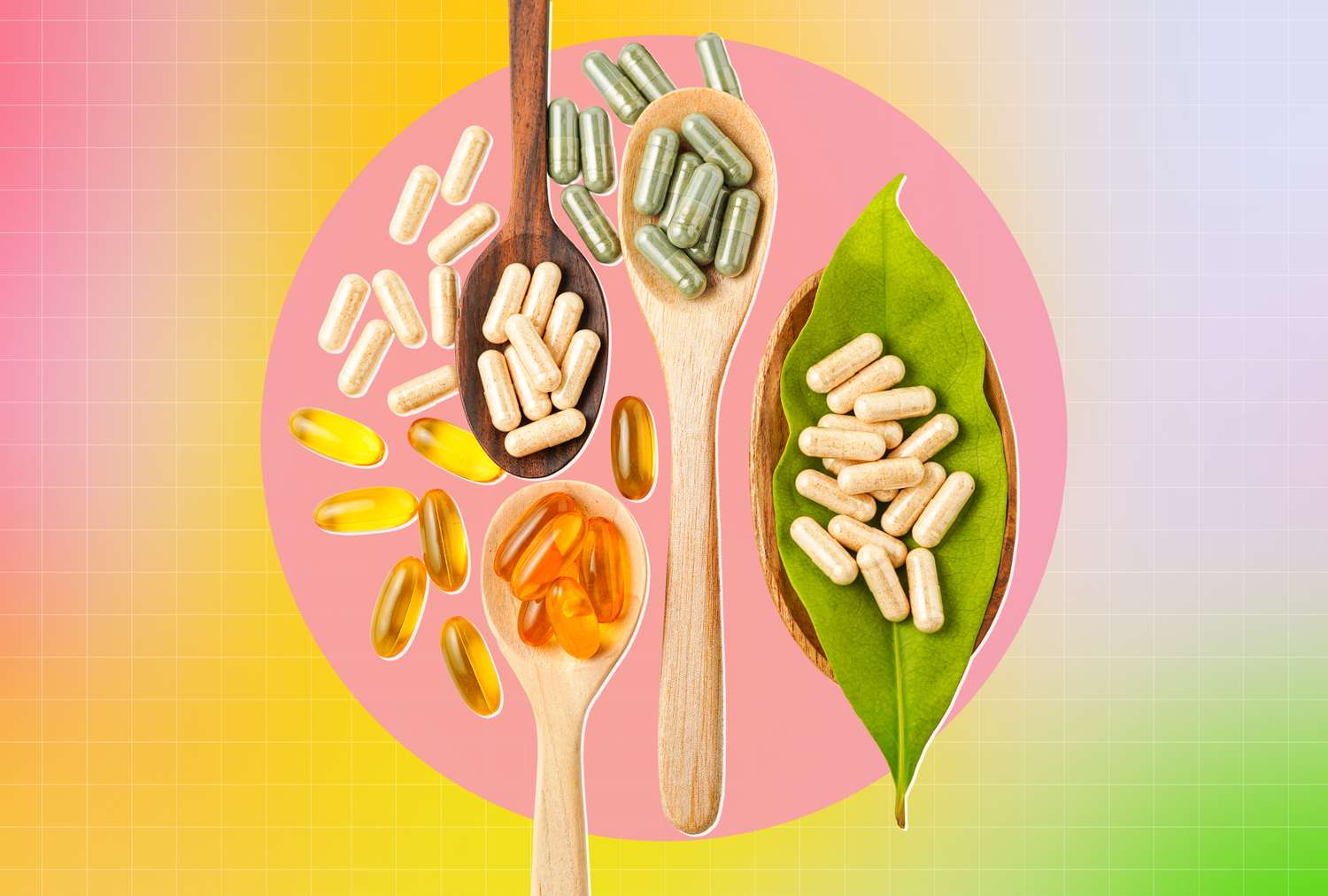Blog
Supplements That May Help Lower Your Cholesterol

- Dietitians recommend supplements like omega-3 fatty acids and soy protein to reduce your cholesterol.
- Experts also recommend talking with your provider about plant sterols and psyllium husks.
- Other lifestyle changes, like quitting smoking and reducing saturated fat in your diet, can help.
High cholesterol affects about 10% of adults living in the U.S., but experts estimate that many more have high cholesterol levels and have no idea. High cholesterol is silent—the only way to tell if you have elevated numbers ( ≥240 mg/dL of total cholesterol) is by getting a simple blood test. It’s important to know if your cholesterol is high because hypercholesterolemia increases your risk for other conditions, like atherosclerosis, or the buildup of plaque in your arteries that can lead to a heart attack and/or stroke. While there are certain risk factors, like your age and genetics, that you can’t control, there are other factors, like your diet and lifestyle, that you can.
Focusing on nutrient-dense foods like whole grains, fruits and vegetables, in addition to moving more, should be the first line of defense in helping manage high cholesterol levels. But there are science-supported supplements that may also lend support in managing your cholesterol levels. Lauren Manaker, M.S., RDN, LDN, CLEC, shares, “A balanced diet is the foundation for managing cholesterol, while supplements act as a helpful safety net to fill in any gaps.”
Registered dietitians agree that these four supplements may be worth considering if you’ve done everything you can to manage your cholesterol levels and still aren’t seeing the numbers you’d like.
Omega-3s DHA + EPA
DHA, docosahexaenoic acid, and EPA, eicosapentaenoic acid, are two omega-3 fatty acids that continue to top the charts as one of the most recommended supplements for better heart health—and for good reason. A meta-analysis of 90 randomized controlled studies found a dose-response relationship of supplementing with these fats and improved blood lipids. Both DHA and EPA helped lower both triglycerides and non-HDL cholesterol levels. Note, triglycerides aren’t cholesterol; they’re a different lipid. Having high triglycerides means you’re more likely to have high cholesterol, placing you at higher risk for heart disease.
While you can get DHA and EPA through food sources, like salmon, sardines, herring and mackerel, most Americans are falling short on including them in their diet. Enter the supplement safety net. Toby Amidor, M.S., RD, shares, “Most people aren’t getting enough DHA and EPA omega-3 fats. That’s where a supplement can be helpful. In fact, research found that taking more than 2 grams per day of a DHA and EPA combined supplement can help lower blood lipids.”
Plant Sterols
Plant sterols are compounds found in plants that have a similar structure to cholesterol. Because of this, plant sterols can help block cholesterol absorption in the gut, which in turn helps keep blood cholesterol levels in check. Manaker shares, “Plant sterols work by competing with cholesterol for absorption in the digestive system. This means less cholesterol gets absorbed into your bloodstream, which can help lower LDL (“bad”) cholesterol levels without affecting HDL (“good”) cholesterol.”
A meta-analysis explored a variety of nutraceuticals, including plant sterols, and the impact they had on blood lipid levels. While research designs are challenging to do on humans with this particular supplement, the body of research continues to support the inclusion of plant sterols as part of an intervention designed to lower cholesterol levels.
The National Center for Complementary and Integrative Medicine also notes that plant sterol supplements have shown promise in reducing cholesterol levels when taken with meals. While they are overall safe and pose minimal risk, individuals with specific genetic conditions may be at an increased risk of heart disease when the supplement is consumed in excess.
Psyllium Husk
This popular fiber supplement has made a name for itself in weight loss, cholesterol management and blood sugar control. Amidor recommends this supplement for cholesterol management, given its longstanding research in the area. In fact, a review highlights the cholesterol-lowering effects this supplement has on humans. Notably, the soluble fiber in psyllium husk helps lower LDL cholesterol levels through binding to bile acids in the intestines. This helps remove them from the body, which in turn lowers cholesterol levels.
Since there are some downsides to this supplement, like its interaction with other medications and ability to hinder absorption of other nutrients and calories from foods, it’s best to work with your provider to identify the dosage that may be best for you.
Soy Protein
Soy protein has been shown to have a positive impact on cholesterol levels. A systematic review and meta-analysis explored the impact that soy protein supplementation had on postmenopausal women and their cholesterol levels. Scientists found soy protein supplementation demonstrated a significant impact on cholesterol levels, noting a reduction of total cholesterol levels and an increase of HDL cholesterol levels (the “good” cholesterol).
Manaker shares that soy protein’s impact on cholesterol levels is due to its ability to “reduce the liver’s production of cholesterol and increase the clearance of LDL cholesterol from the bloodstream.”
One important point when it comes to soy protein supplementation is that the research shows food sources of soy protein yield better results than a pill form of soy protein, likely due to the other nutrients found in soy products. Manaker recommends considering more tofu, soy milk, edamame and soy protein powders in your diet to start. The good news, too, is that there is little risk associated with consuming more soy protein in your diet (unless you have a soy protein allergy).
Other Strategies to Support Cholesterol Levels
While supplements can be used as a safety net, they are not a replacement for a healthy diet or lifestyle habits that have proven to support cholesterol levels. Amidor and Manaker recommend considering these other strategies to support healthy cholesterol levels:
- Limit saturated fat. Saturated fat can raise LDL cholesterol levels, impacting your heart health. The Dietary Guidelines for Americans recommend consuming no more than 10% of your daily calories from saturated fat. To make smarter choices, choose lean and extra-lean cuts of meat and trim visible fat off your meat when preparing it. Reducing consumption of cheese, full-fat dairy and processed meats is also a great way to reduce saturated fat in your diet.
- Eat more fruits and vegetables. Filled with fiber and antioxidants, fruits and vegetables help improve diet quality and lower one’s risk of chronic disease. Yet, only 10% of people in the U.S. eat the recommended daily fruits and veggies. Make a conscious effort to add one serving of either a fruit or veggie at every meal and snack.
- Enjoy fatty fish (like salmon) twice per week. Up your intakes of those omega-3 fatty acids DHA and EPA by consuming fatty fish at least twice per week. Enlisting the help of canned salmon is an excellent dietitian-approved swap to make mealtime magic happen with these fish.
- Choose foods with the American Heart Association’s Heart Check Mark. An easy way to navigate the market is by looking for foods with the heart-check logo. This means items have been vetted by the American Heart Association and have lower fat, sodium and added sugar than other items. But, as with all foods, even a heart-check approved snack food should still be consumed in moderation.
- Exercise regularly. Regular movement is an excellent way to improve cholesterol levels and can help manage stress levels (another factor that can indirectly affect your lipid levels). In fact, research shows that moderate and high-intensity movement improves HDL cholesterol levels (the good one). Starting small with a walking routine is a wonderful way to invite more movement into your day.
- Quit smoking and vaping, and limit alcohol. Smoking and drinking both increase one’s cholesterol levels. Quitting smoking is a great idea if you have high cholesterol. Alcohol is a known carcinogen and should be reduced. If the thought of giving it up stresses you out more, stick to standard serving sizes when you do enjoy a glass of wine (which is a 5-ounce pour).
Meal Plan to Try
7-Day Anti-Inflammatory Meal Plan to Help Lower Cholesterol, Created by a Dietitian
Our Expert Take
Nutrition and lifestyle play a critical role in managing high cholesterol levels. But there are four supplements that may offer some benefits, too. For example, nutrition experts recommend adding the omega-3 fatty acids DHA and EPA, as well as soy protein, into your regular routine. Talk with your provider if you want to consider adding psyllium husk or plant sterols as part of your cholesterol-lowering plan.
Working with your individual provider to tailor a plan for you is the best way to ensure you learn how to proactively manage your cholesterol long-term in the way that’s right for you. Other lifestyle changes, such as quitting smoking, limiting alcohol intake, getting regular exercise and reducing saturated fat in your diet, may also benefit your cholesterol levels.












